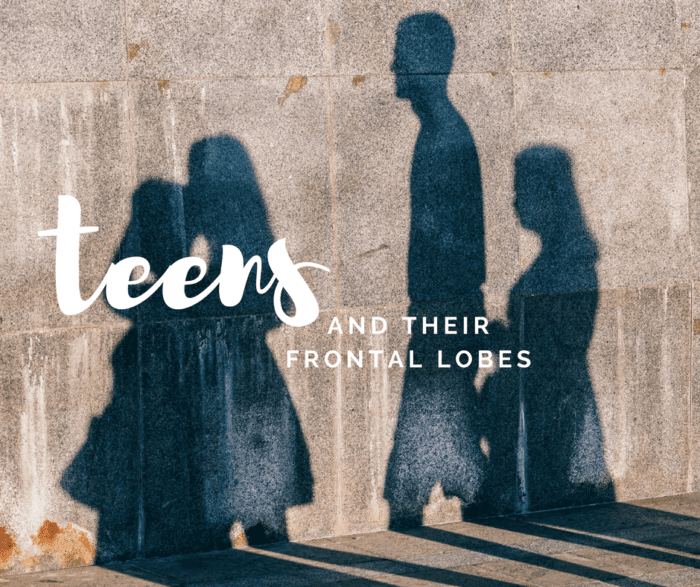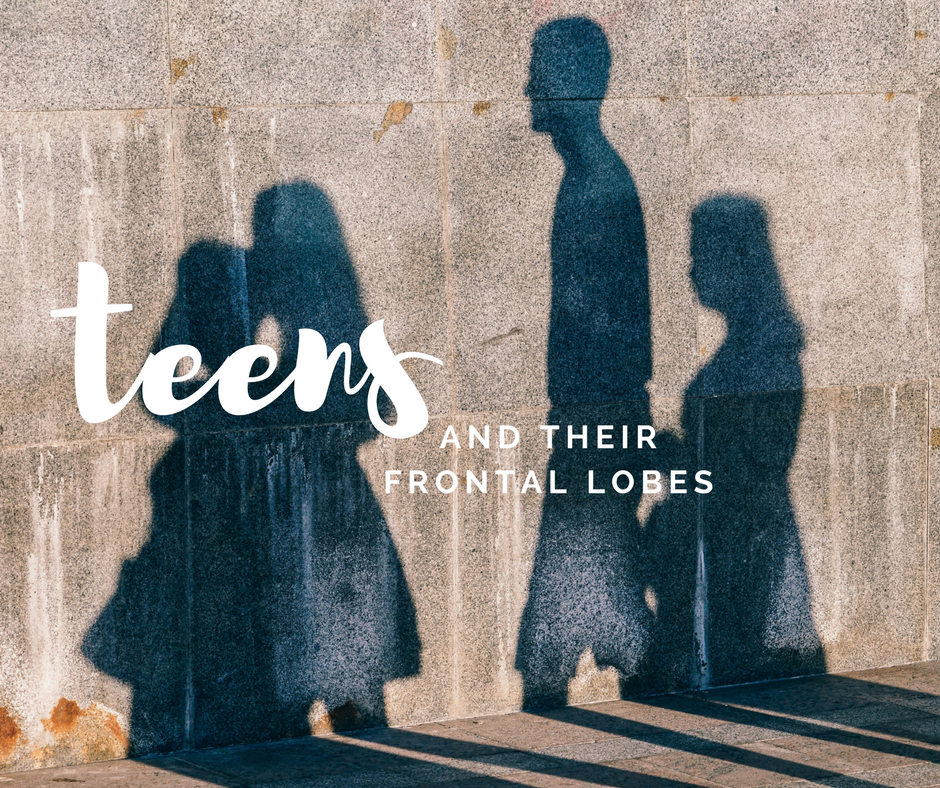
“What were you thinking?!” I say to my son (or at least think) more than I’d like to admit. Here’s a very small example, but one that over time becomes more frustrating: clothes surround, but do not go INTO his laundry basket. Or, he has two ties for school, but they are nowhere to be found.
I want to understand the developmental stages of my teen’s brain to give me greater insight into his decisions and behaviors so I can relate to him better. Almost all recent articles on this topic source neurobiologist and mother of two teenaged boys, Dr. Frances Jensen. She’s the co-author of The Teenage Brain: A Neuroscientist’s Survival Guide to Raising Adolescents and Young Adults. She describes teen brains as Ferraris with weak brakes.
First, what exactly does the frontal lobe (prefrontal cortex) control? The frontal lobe of the brain is involved in decision-making, planning and self-control. It’s also where cause-effect relationships are processed. The frontal lobe is also where executive functioning resides. The development in the frontal lobe continues throughout adolescence and into the early twenties, and is the last area of the brain to mature. Teens do have frontal- lobe capabilities, but their signals are not yet quick enough to get to the back of the brain to regulate their emotions. It’s why risk-taking and impulsive behavior are more common among teens and young adults. Conversely, the part of their brain that is well developed is the limbic system. This is where risk, reward, impulsivity, and emotion reside. That is why “novelty-seeking” is so common, it’s built into their brain without its front lobe to balance it out.
Fact 1: Teenagers are simply not yet equipped to think through things in the same way as an adult. It was once believed that teens were impulsive due to raging hormones. According to a PBS article, functional imaging studies have looked at children, adolescents and adults who are given the same emotional stressor, and the adolescents will light up the emotional center — the limbic system — twice as high as children or adults.
Fact 2: Teens need guidance even when everything he/she is telling you is the opposite (think: eye rolling, distant, moody, conflict, anger). We can best do this through open communication and setting clear boundaries. Teens often don’t understand themselves, and a frontal lobe discussion can give them insight into their actions. This is also a good place to start when discussing effects of alcohol, drug and violent video game usage. The biology of teens’ brains [makes them] more susceptible to the effects of substances and stress. Having a few facts prepared can help to make us somewhat more credible.
Fact 3: Teens need a lot of sleep. Teenagers’ internal biological clocks shift forward, and they start having trouble falling asleep before 11 p.m. and waking up before 8 a.m. Emerging science suggests sleep may play an even more important role than we thought in terms of brain development.
Putting ourselves in our kids’ shoes is a good way to try to understand them. Take a look at their environment through their eyes. Just as we, as adults, are bombarded with an extreme amount of noise, so are they. We are more equipped to handle it. Knowing that teens are novelty-seeking, you can brainstorm the many ways that novelty can be accessed by your teen, and talk to him/her about it.
Dr. Jensen suggests giving your teens an opportunity for them to rehearse mistakes, including mistakes in the social media world before they make them themselves in the real world.
I’m a huge proponent of demystifying mental illness by talking about it. Knowing that mental illness occurs in late teens, it’s an important topic to address here. One in four people in our society have some form of mental illness. Knowing this fact helps us to keep communicating with our kids, and staying alert and aware while not being overbearing.
No matter what stage of parenting you are now, at some point we’ll all be moms (and dads) of teens. Here’s to having the information we need to make living with them easier, enjoy the fleeting time we have together and shaping these beautiful creatures into healthy, joyful, well-adjusted adults. Let’s all accept our kids will do very stupid things in a very impulsive way. We will get through this.










